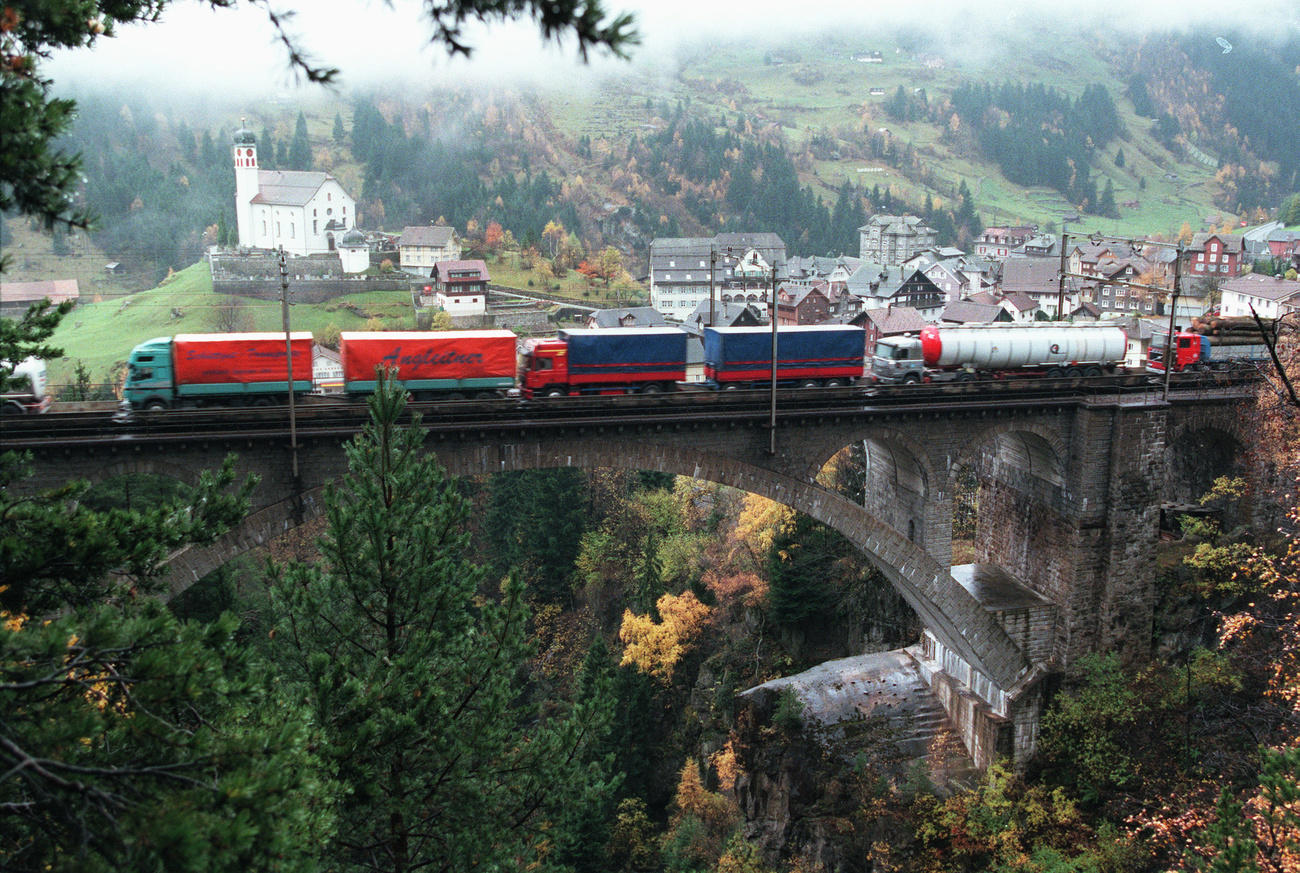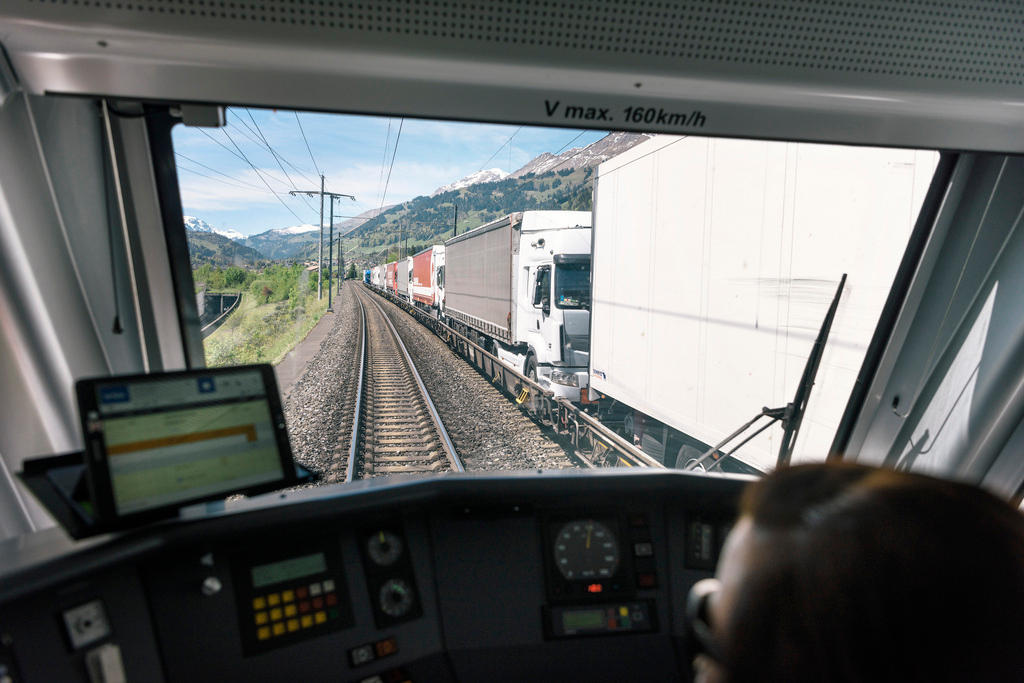
Additional funds set aside for transalpine rail transport

The Swiss government has decided to earmark CHF180 million ($182 million) as part of a package to promote the transfer of heavy-goods transport from road to rail.
In its bill to parliament, the government foresees an extension of payments to transport companies using freight trains until 2026 and a decrease in so-called track access charges with CHF90 million each.
The measures also include a plan to impose higher fees for heavy polluter trucks and to grant special tariffs for extra-long cargo trains as well as more roadside checks by police.
“Both the business community and the population will benefit from the planned measures,” said Transport Minister Simonetta Sommaruga at a news conference on Wednesday. “They will also have an impact on climate and the environment because they mean less noise and cleaner air.”
Sommaruga added that the Swiss transport industry welcomed the transfer of goods traffic to rail. The planned measures still need approval by parliament.
Swiss voters in 1994 approved an initiative to protect the Alpine region from the negative effects of transit traffic through Switzerland.
However, environmental groups have criticised that implementation of the initiative has been slow and the target of 650,000 annual transits by lorries has not been achieved.
Last year, there were 941,000 heavy-goods vehicles transiting the Alps, according to official figures. But the government says almost twice as many trucks would use the north-south throughway in Switzerland annually without the current restrictions.
Sommaruga stressed that more still needs to be done to reduce traffic.
In a press releaseExternal link, the government also blames the delays on the construction of access rail routes in neighbouring Germany and in Italy.

More
Has Alpine rail transport come far enough?

In compliance with the JTI standards
More: SWI swissinfo.ch certified by the Journalism Trust Initiative






























You can find an overview of ongoing debates with our journalists here . Please join us!
If you want to start a conversation about a topic raised in this article or want to report factual errors, email us at english@swissinfo.ch.